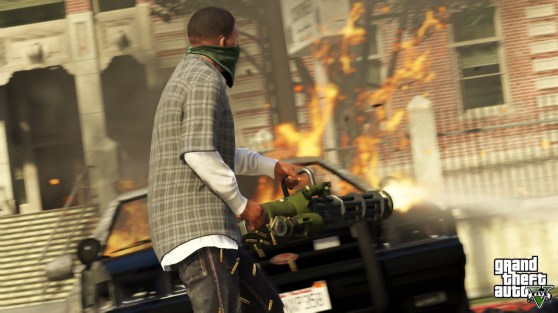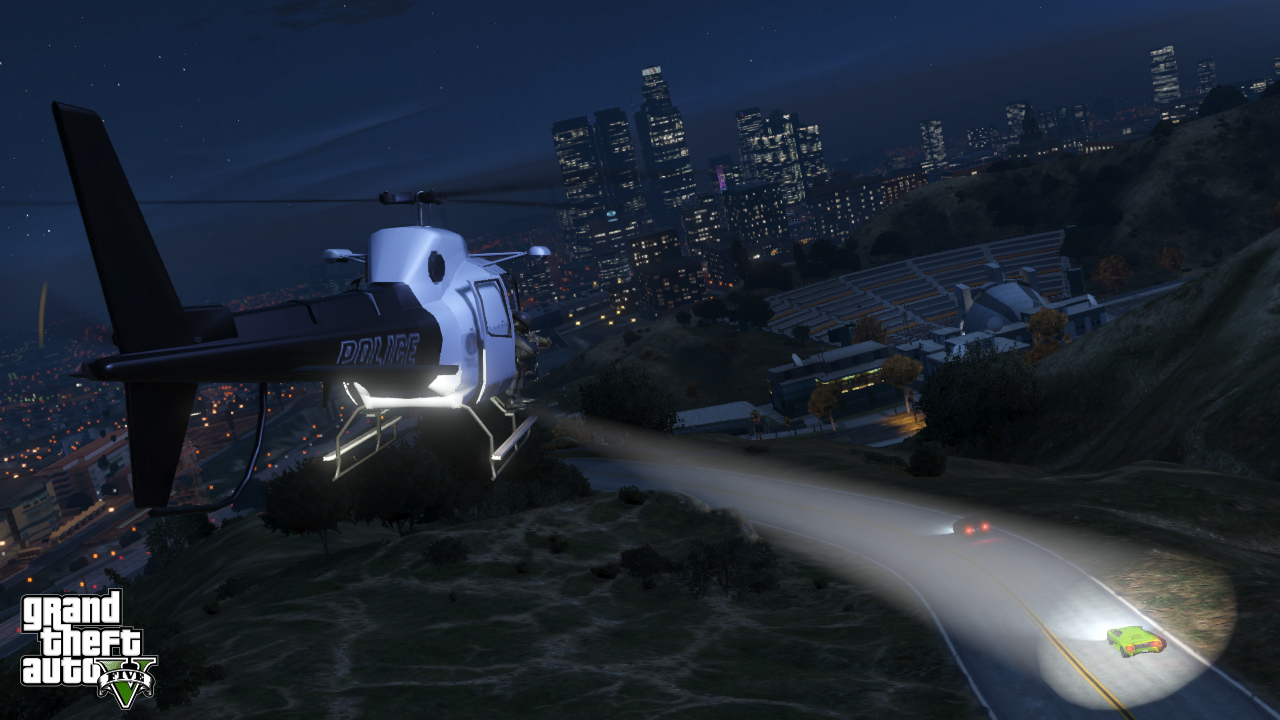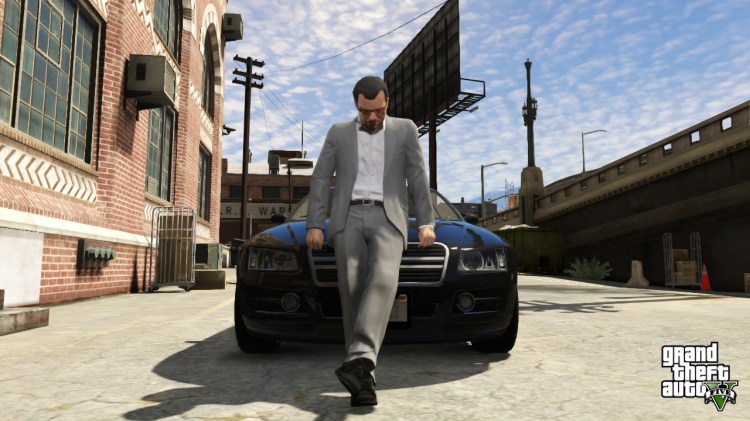This post has not been edited by the GamesBeat staff. Opinions by GamesBeat community writers do not necessarily reflect those of the staff.
The release of Grand Theft Auto V has shown that people will collectively pay more than $1 billion dollars to play the villain. That doesn’t mean we all want to be bad people.
Heroics have been a central pillar of gaming since the era of Donkey Kong, and it is as easy as ever to find new releases where you can save the world. How many princesses have we rescued by now? How many invasions and ancient menaces have we stopped? But the Grand Theft Auto series swerves past the castle in somebody else’s sports car, wondering how much the princess would cost for a minute in the backseat. And people love it.
Narrative games have long been guilty of stitching “the Chosen One” into our characters’ tighty-whities — as if that’s a good thing. Many games use this trope, but few understand the psychological investment needed to make us care. We aren’t pretending to be heroic for the sake of being heroes. We do it to see our characters’ actions influence the world around them. We do it to feel validated.
Enter the career criminal — teeth flashing, gun smoking, foot pressed hard on the pedal. A villain, if you believe the wanted posters. And you should. After all, it’s your face up there.
It was your hand on the controller when your avatar shot that suit on the roadside. He deserved it. When you pulled open the door of his shiny SUV and yanked him out on the street, he tried to act big and stand up to you, of all people. One punch, and he earned one bullet. Fair trade. Welcome to the world of Grand Theft Auto, buddy. Don’t be a hero.
Here, your protagonist (or protagonists — GTA V gives you three) will make a quick splatter painting out of anyone who tries to save the day. So if you’re the villain of the story, why play? We are supposed to feel bad about hurting people.
It’s easy to say that we let ourselves play these games because we know that they’re not real, but that doesn’t answer the question. Also, the characters aren’t really human, but the processes shaping them are real, and so are our personal motivations.

Risk and repercussion are the crux. Your real life is unaffected by a random game character’s death, and even the game world circumvents any sense of responsibility. That isn’t to say that fear of punishment is the only thing keeping people in line. Compassion is a very real thing and does us a lot of good. So why do we abandon it in virtual worlds like the one presented in GTA?
Consider the scale of the victim and crime. Let’s define scale as “permanence and impact.” The body disappears without a trace. Exact copies can be found throughout the city, running off the same A.I. data file. It’s like the death never happened.
Oh, but the police will notice! Until they forget.
Hence, there is no long-term impact for anyone in the game world except the player. And the player is almost always rewarded because that’s what games do. Even if you sympathize with the A.I., you didn’t “hurt” it. There are no consequences, not even for the supposed victim. In GTA, the act of murder is harmless.
Harmless or not, why do we want to do this in the first place? Because of the short-term impact: the destruction of inhibition.
Up until that citizen’s corpse fades away, your actions matter to them. You stop them from driving down the road; it doesn’t matter that they didn’t have an origin or destination. You pull them out of their car; it doesn’t matter that they didn’t leave a cup of coffee in it. They get angry. They acknowledge what you are doing, and respond as if — in that moment — you are important. They are forced to validate and give in to your desire, whether you want their car, money, or to make them flinch.
It’s the art of letting players bully or troll the NPCs. Those digital bullets are fired off with much the same purpose as YouTube comments. The more visceral and immediate the reaction, the better. To this part of the mind, positive and negative reactions taste the same. Morality is a long-term concern — outside its immediate domain.
In terms of the drama triangle, the player is adopting the role of “persecutor.” Civilians play the “victim,” and police are the “rescuer.” Then the cops chase you down, and the roles rotate for a bit. Police become the persecutor, chasing the victim player, and civilians turn rescuer by providing vehicles for escape.
That may be psychologically twisted, but that’s part of what makes it work.

Sure, developers could capitalize instead on positive interactions. They could set up situations where NPCs will want to react by throwing hugs instead of punches. And often they do. Games try but rarely pull it off convincingly. We don’t feel anything when we save the princess. Or the world.
Here’s a good example from Mass Effect: We feel something when we stop Ashley from shooting Wrex in the back but not when we end the Reaper menace. Conveying positive emotions is hard. It takes nuance, effort, and time.
Anger and fear are easy. We always feel good about shooting an enemy in the face. Our brains are tuned in to negativity because our ancestors needed to respond quickly to threats. The nicety of a hug can take its sweet time to sink in, but we need to strike fast if something tries to hurt us.
For the long setup it takes to produce one warm smile, you can get several wicked grins. Grand Theft Auto gives players wicked grins aplenty.
And that’s okay. Grin and fire away, mis amigos. Things that make you a bad person include eating the last Oreo, paying Uwe Boll to make a movie, and parking over a crosswalk — but not playing Grand Theft Auto.

